Welcome to the June 2018 issue of the Global Washington newsletter.
IN THIS ISSUE
- Letter from our Executive Director
- Issue Brief: The Future of Sustainable Sourcing
- Organization Profile: Mercy Corps
- Changemaker: Robin Barr, Global Director of TFT
- Welcome New Members
- GlobalWA Member Events
- Career Center
- GlobalWA Events
Letter from our Executive Director
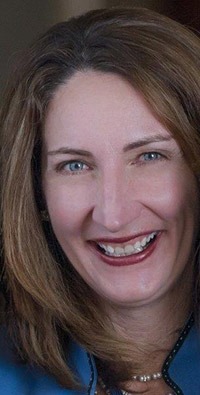
The first goal listed under the Sustainable Development Goals (SDGs), “No Poverty” aims to “End poverty in all its forms everywhere.” In countries around the world where a significant percentage of the population still lives in extreme poverty, surviving on less than $1.25 a day, improved economic opportunities are desperately needed. At the same time, we must ensure that the rights of people and the natural systems on which their health and livelihoods depend, are also protected.
To that end, companies sourcing raw material from developing countries are increasingly adopting what some call a “shared value” framework, one in which social good and core business objectives are intertwined. Often this results in strong for-profit and non-profit partnerships with a common goal of improving lives and catalyzing economic growth within low-income countries.
I’m proud to say that several Global Washington non-profit and for-profit members have embraced shared values and built ethical value chains that advance the goal of eliminating extreme poverty. This issue of our newsletter spotlights some of our members that have been working in partnership with corporations to promote more sustainable sourcing. I invite you to join us at our event on June 21 with speakers from PepsiCo, The Forest Trust (TFT), Mercy Corps, and Resonance to find out more about this topic and join the conversation.
Besides curating these important conversations, another part of our work includes increasing philanthropy for global issues. Along those lines, I would like to congratulate all 22 GlobalWA members who participated in the University of Washington class on global philanthropy, which was a partnership among UW, GlobalWA and The Philanthropy lab. Five GlobalWA members were selected by the students, after an extensive vetting process, to receive grants ranging from $5,000 to $25,000. It was a powerful experience for the students and a meaningful opportunity for our members to connect with a younger audience.
Lastly, my heart goes out to more than 1.7 million people in Guatemala who were affected by the Fuego Volcano eruption this past week. We have a list on our website of our non-profit members that are responding with emergency relief and recovery teams, if you would like to learn more and donate to support their efforts.
All my best,

Kristen Dailey
Executive Director
Issue Brief
The Future of Sustainable Sourcing
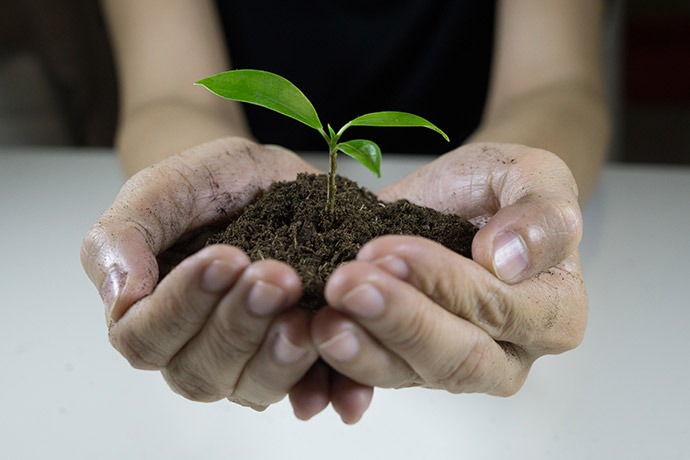
To move beyond subsistence-level farming, agricultural communities within developing countries often seek out export markets as a means to increase revenue and fuel local economies. Notable success stories have shown what’s possible. In Ethiopia, for example, chickpea production increased dramatically in just four years, with earnings from export increasing from $1 million in 2004 to $26 million in 2008.
In the best of circumstances, when U.S. or European companies purchase their raw materials from developing countries, the people living in those countries can see enormous benefits – increasing incomes, improved local services, greater food security, and more. Under other circumstances, corporate sourcing can have catastrophic impacts on local communities and ecosystems.
Many corporations choose to work in partnership with non-governmental organizations that seek to improve working and living conditions for people who are impacted by corporate sourcing. Mercy Corps, for example, has worked for over a decade with its partner Tazo (now Starbucks) in the private tea estates of Assam and Darjeeling, and the families living there who have been cultivating tea for generations. With the support of Starbucks, Mercy Corps has been able to provide the workers and their families with education, vocational training, and other important services.
Perhaps one of the most notorious commodities sourced today is palm oil. To assist the palm oil industry in adopting practices that “help avoid deforestation, peat development, and exploitation of workers and communities,” The Forest Trust (TFT), has developed an online platform. Though TFT notes the tool isn’t sufficient on its own to promote supply chain transparency, what it can do is support verification efforts on the ground, including businesses’ own efforts to verify their supply chain adherence to best practices.
Another organization that helps companies to bridge the gap with local communities is Resonance. The company helps businesses build strong local workforces and reliable local suppliers in frontier markets.
While export markets alone will not increase livelihoods and ensure environmental sustainability, companies and non-profits that adopt a shared values approach of protecting people and ecosystems, provide inspiring models of sustainable sourcing that can lead to a better future for all.
* * *
The following Global Washington members are working to improve sustainable sourcing practices around the world:
Agros recognizes the importance of agriculture as a profitable endeavor that helps families overcome poverty. Agros villages apply modern agriculture and climate-smart practices that increase yields, protect the environment and allow farmers to produce 2.6 times more harvests per year than the average smallholder farmer in Latin America. The non-profit does this in alliance with private sector allies, such as ECOM and Walmart, which partner in bringing technology and certification standards to Agros communities in Central America. agros.org
Fair Trade USA is a nonprofit organization and the leading certifier of Fair Trade products in North America. Their rigorous standards around the production of over 30 product categories – from coffee, cocoa, and sugar to coconut, seafood, and apparel/home goods – help protect fundamental human rights, ensure safe, healthy working conditions, protect the environment, and deliver additional economic resources to producing communities. In addition to these requirements, Fair Trade also ensures that producers earn additional Community Development Funds to address their pressing needs. Many groups vote to spend this money on projects that benefit women, like cervical cancer screenings, scholarships, child care centers and microloans for income diversification. fairtradecertified.org
The Forest Trust (TFT) is a global non-profit that helps companies and communities deliver environmentally and socially responsible products. TFT is active in the key nodes of the supply chain, and helps turn values into clear policies and guidelines. TFT’s supply chain mapping and traceability work helps companies to trace products back to their source and identifies key social and environmental issues. TFT staff coach and mediate to help solve complex problems on the ground, working with suppliers, NGOs and regulators. They also help facilitate monitoring by international and local NGOs, not just as a means of independent verification but as a source of constant improvement and learning. tft-earth.org
The Initiative for Global Development (IGD) is a Washington, DC-based nonprofit that engages and harnesses the power of the private sector to advance sustainable development and inclusive growth in Africa through business investment. IGD brings together CEOs and senior executives from leading African and global companies through its Frontier Leader Network to catalyze greater business investment and impact on the continent. IGD envisions an Africa with thriving, impactful businesses that create inclusive growth, and where business leaders are a positive force in shaping Africa’s future. igdleaders.org
Largesse is a mission-driven business that specializes in curating beautiful handmade, eco-conscious and/or fairly-traded corporate gifts. It provides corporate gift buyers with unique solutions for executive gifts, incentive rewards and promotional products that align with and reinforce their brand values. Largesse creates sustainable economic opportunities for marginalized and talented artisans across the world by giving them equal access to the marketplace of corporate buyers. In this way, it promotes and preserves centuries-old skills, artisan partners earn a fair living wage while working in safe conditions, and products are gifted that are kind to the planet and its people throughout their lifecycle. largessecompany.com
Mercy Corps works in partnership across the private, public and civil society sectors, promoting accountability, inclusive participation and mechanisms for peaceful change. To meet companies’ increasing interest in leveraging their unique skills and assets to make a difference and give back, Mercy Corps has developed a partnership menu to enable corporate partners to tailor their engagement in a way that best meets both Mercy Corps’ objectives and the objectives of the company. mercycorps.org/corporate-partners
Oikocredit US promotes and facilitates the global work of Oikocredit International, a cooperative social investor providing funding to the microfinance sector, fair trade organizations, cooperatives, and small to medium enterprises. Oikocredit has identified agriculture as a priority sector, investing in 180 agricultural partners in 35 countries. Oikocredit’s dedicated agriculture unit invests across the value chain of many global commodities to strengthen smallholder farmers’ and other partners’ ability to participate in competitive local, regional, and international markets. In addition to loans, Oikocredit supports partners with capacity building grants, technical assistance, and education. Oikocredit US
Resonance helps its clients unlock opportunity in frontier markets by designing action-based strategies, forging strategic partnerships, and executing across sector boundaries. Since 2005, Resonance has built over 200 partnerships and delivered solutions that enable businesses to achieve their growth objectives, NGOs to fulfill their missions, and development agencies to reach billions of individuals born into poverty. From technology distribution in remote regions, to the development of insurance products for smallholder farmers, Resonance is committed to driving value for businesses that in turn addresses the challenges of global poverty. resonanceglobal.com
World Vision is a global development organization, solving the puzzle of poverty in developing nations and fragile states. To solve this complex puzzle, the organization takes a big-picture approach and employs a comprehensive, sustainable, and holistic model to address a community’s unique needs. World Vision engages corporations through a suite of business solutions for needs ranging from ensuring sustainable supply chains; new market and new product development; providing reverse logistics product donations utilizing a best-in-class international supply chain and logistics platform; and internal and external customer engagements. The integrated development model ensures that World Vision’s corporate partners’ investments will continue to transform lives for generations by empowering families to improve their livelihoods while equipping entire communities to be self-sustaining. worldvision.org
Organization Profile
Mercy Corps
By Joanne Lu
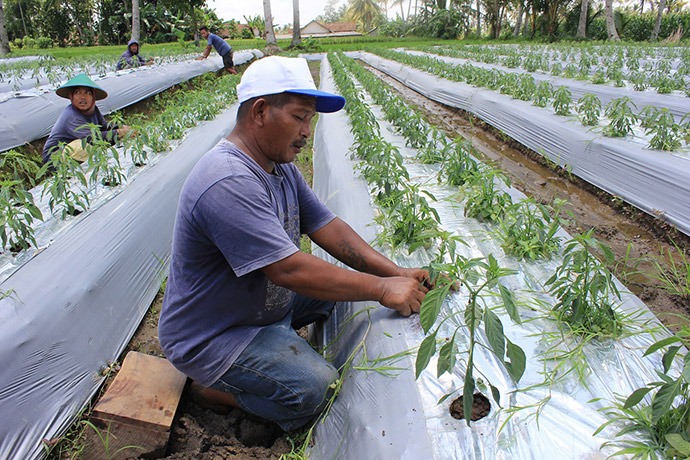
In 2015 John Deere Foundation committed funds to support Mercy Corps’ work to increase household incomes of smallholder rice farmers in Indonesia. Photo Credit: Mercy Corps.
Over its nearly four-decade history, Mercy Corps has continuously expanded through private, public and civil society partnerships to “help people recover from disaster, build better lives and transform their communities for good.”
What started in 1979 as Save the Refugee Fund – a task force responding to the infamous Cambodian “Killing Fields” refugee crisis – steadily grew into the humanitarian aid giant that Mercy Corps is today. The organization now works in almost 40 countries, with programs spanning more than a dozen humanitarian and development sectors, and has even been nominated for a Nobel Peace Prize.
But from its founding, partnerships have been “central,” to how Mercy Corps works, according to Allison Morris, interim vice-president for Corporate and Foundation Partnerships.
“Our partnerships help define how we do things differently,” Morris said. “The world is facing some of the greatest humanitarian challenges of our time, and at Mercy Corps, we know that no single organization can tackle them alone. So we work across the public and private sectors to bring our unique expertise, innovations and solutions together to spark, scale and sustain change for communities in need around the world.”
Mercy Corps has a whole “menu” of ways corporations and foundations can partner with them – whether through cause marketing, employee engagement, grantmaking impact, emergency response or “Partners in Possible,” their annual giving society.
“In our experience, companies today are looking to develop deep, meaningful partnerships and leverage many of their unique skills and assets to make a difference and give back, including financial resources, employee talent, product, customer engagement and more,” Morris said. “Mercy Corps is looking for that, too.”
One area in which partnerships have played a key role in Mercy Corps’ work is in sustainable sourcing and ethical supply chains.
For example, Mercy Corps has been partnering with Starbucks for 13 years in tea and cardamom-producing communities. These are communities in which generations of families often live in appalling conditions and work for meager wages.
But according to a 2012 news article, it was only because of Tazo Tea (which Starbucks owned from 1999 to 2017) that Mercy Corps was granted access to the tea estates in Assam and Darjeeling in the first place. The owners of the Indian estates prohibited even the government from inspecting conditions, Rosy Choudhury, Mercy Corps’ Project Director of the Community Health and Advancement Initiative (CHAI) at the time, told Puget Sound Business Journal.
But because Tazo was a corporate customer, the estate owners were willing to work with Mercy Corps and Starbucks. For more than a decade now, they have been providing families on the estates vocational training for youth, access to water and health services, economic opportunities and alternative livelihoods.
As the article reported, Tazo wasn’t even a large tea buyer at the time, but in 2002 it became the first retailer to launch a corporate social responsibility program for tea-estate communities. Since then, many others – including Twinings and Steven Smith Teamaker – have followed suit.
Another way Mercy Corps is impacting supply chains is through its Social Venture Fund, which makes equity investments in for-profit businesses. One of those businesses is Vega Coffee, which sources beans from low-income farmers in Colombia. But instead of feeding into an excruciatingly long supply chain, in which farmers rarely see enough profit to lift themselves out of poverty, Vega “pushes value-add[ing] coffee processing (cupping, selecting, roasting, etc.) down to the farm level,” according to Morris. She says that this has increased farmers’ incomes by four times. Vega then markets, sells and ships the roasted coffee from farms directly to U.S. consumers’ front doors within five days of roasting.
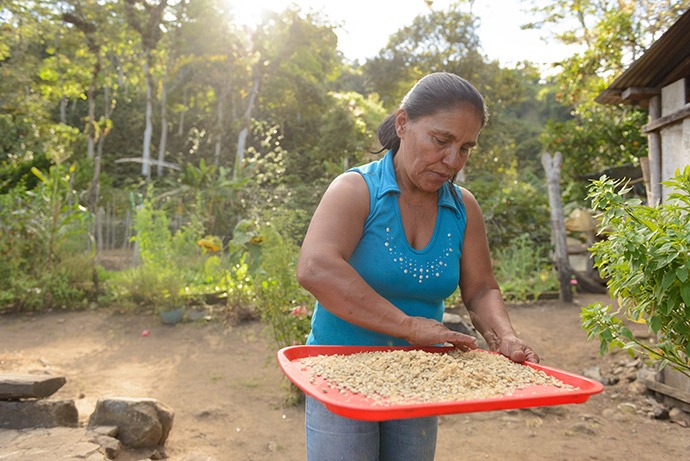
Maria Flor works with Mercy Corps and its partner CAFISUR, a coffee farming cooperative in Colombia, to improve environmental practices and production on her farm. She manages five hectares of coffee, with 22,000 plants. Funding from Starbucks supports training on sustainable land and water management for coffee farms like hers. Photo Credit: Miguel Samper for Mercy Corps.
According to Morris, an increasing number of companies have also been asking Mercy Corps to help them work with smallholder farmers to implement more sustainable farming practices that build up communities’ resilience to climate change. These practices include safe water, soil, crop and livestock management.
In addition, as the average age of farmers globally verges on 60, Mercy Corps is helping agriculture co-ops get more young people involved in managing and running local farms.
“Communities are realizing that, in order for their agricultural communities to be vibrant, forward-thinking and globally competitive, having youth stay in such communities and be involved in agricultural value chains, at all levels, is key to their success,” Morris said.
Looking ahead at the organization’s next decade, Morris says she hopes Mercy Corps will continue to take a market-driven approach as it finds new ways to “facilitate connections between the private sector and the needs of communities around the world.” Thankfully, it appears that these partnerships are being urged on by consumers, executives and even employees, who are voicing how important corporate social responsibility is to them.
“Companies understand the importance that their buying decisions have on local markets,” Morris said, “and that by purchasing products that have been created safely and sustainably, they can have a positive, long term impact on those local markets and communities.”
She says that momentum for sustainable sourcing and business practices in general has been building for a while.
“These changes are needed if we are going to create a world where people, planet and profits are given equal importance,” she said.
Changemaker
Robin Barr, Global Director of TFT
By: Joanne Lu
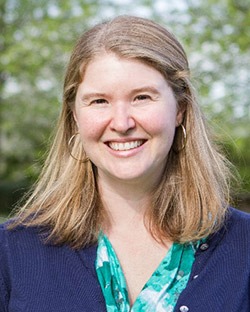 Social and environmental issues have never been separate for Robin Barr. As the global director of TFT (The Forest Trust), she’s now helping companies gain that perspective, as well, so they can use their leverage in supply chains to address those issues.
Social and environmental issues have never been separate for Robin Barr. As the global director of TFT (The Forest Trust), she’s now helping companies gain that perspective, as well, so they can use their leverage in supply chains to address those issues.
Growing up in Eastern Washington, near the Colville Indian Reservation, Barr says her worldview was largely influenced from a young age by her best friend and her best friend’s father – a Native American storyteller.
“I grew up with an understanding that indigenous culture is very much tied to place, land and ecology,” Barr said. “[That] framed my thinking so that the environment and social issues are always one and the same.”
Her experiences over the years have only confirmed the notion that poverty is inextricably linked to the environment. Even at 15 years old, while volunteering with a traveling women’s health group in India, Barr found that the women they worked with mostly wanted to talk about deforestation, which was forcing them to walk further and work longer for less firewood.
After her initial experience abroad, Barr knew she wanted to do international work, but didn’t have an exact field in mind. She enrolled at Washington State University and took classes that interested her, until she graduated four years later with a degree in environmental science and regional planning.
Immediately, she took the first overseas opportunity that opened up for her and moved to Meru, Kenya, where she taught environmental science at a Methodist university. But Barr found herself captivated in her spare time by the elephant-farmer conflicts that were escalating in the area, as the elephants’ habitat and migration paths were being deforested. As a result, elephants were raiding nearby farms for food.
Additionally, she began to develop an interest in agroforestry systems and learning how smallholder farmers’ access to international markets help them afford things like school fees, cars, and land, but can also have a negative impact on them and on the environment.
“I really got interested in these issues by, first of all, caring about the poor and the disenfranchised and realizing that what they care about is often the environment,” Barr said.
After two years in Kenya, her research led her back to the U.S. for a master’s degree in environmental management from the Yale School of Forestry. That’s where she first learned about TFT.
During a class on sustainable forestry and forest certification, TFT Founder Scott Poynton shared with Barr and her classmates how TFT was working with European furniture manufacturers to convince forest managers in Asia and Africa to develop more sustainable practices. The organization seemed to be grappling with the same issues she saw as relevant, based on her time and experience in Kenya, India and even Washington state. So, when the opportunity came up in 2004 for her to work for TFT in Indonesia – even though it wasn’t what she had anticipated doing after spending two years in East Africa learning Swahili – she took it.
In Indonesia, Barr worked with communities across the island of Sulawesi that were growing their own teak, a very popular wood for furniture. At the time, civil society was putting a lot of pressure on companies not to purchase teak from a company owned by the Indonesian government – the largest commercial grower in the world – because of land conflicts that were sometimes resulting in violence.
With market demand in place for ethically-sourced teak, TFT wanted to connect the communities on Sulawesi to factories that supplied to the European furniture companies that worked with TFT. Barr helped these communities negotiate contracts, and get the necessary permits to harvest their teak and sell it to factories thousands of miles away. She also helped them develop plans to ensure sustainable harvesting and income over time and get eco-certified by the Forest Stewardship Council (FSC). According to Barr, these actions increased the farmers’ proceeds by about 70 percent.
But not only did Barr help the farmers on Sulawesi sell the teak on their own land. For years, the community had wanted the rights to a plantation in the area that the Government owned, but had forgotten about. They even formed a co-op for this appeal without much success. After three years of TFT’s involvement, the Government handed over the plantation to the co-op.
The teak program in Indonesia was such a success that TFT launched similar tropical hardwood programs around the world in Java, Laos, and northern Vietnam. Barr’s success there also eventually lead to promotions as the U.S. country head, the Americas director and, currently, global director. TFT’s work now includes working on palm oil, pulp & paper, biomass, cocoa, sugar, and many other global commodity supply chains linking people and products across six continents.
“I’m not in the field as much as I used to be, obviously, but I get to be a coach and a mentor to a whole bunch of people all over the place who are in the field on a regular basis,” Barr said. “That’s really gratifying, because a lot of times, I will be the only person that person has talked to all month outside of their local environment about really complicated and stressful social issues that they’re trying to develop solutions to.”
Indeed, the issues TFT tackles are massive and complicated. TFT works with brand giants like Nestle, Hershey, and Mars that have made a commitment to responsibly source palm oil – a major driver of deforestation and displacement, especially in Southeast Asia. TFT helps these companies map their supply chains globally, engage suppliers, assess supplier practices and improve those practices, where needed. This involves working with plantation and mill managers in SE Asia, Africa, and Latin America. Through this work, they’ve helped Indonesia’s largest palm oil plantation company, Golden Agri-Resources, do assessments in all its plantation areas across the country to map conflicts with local people, understand how operations are impacting indigenous groups, evaluate labor practices, and build a holistic plan for addressing the issues. Golden Agri-Resources is now a TFT member, committed to no deforestation and no exploitation.
“Our job is not only to listen to communities and play a mediator role between company and community, but also helping companies get the systems and trained staff in place so that … they can begin to engage with local communities in a more respectful way and resolve the kinds of conflicts that they normally run into,” Barr explained.
Over the next decade, she hopes TFT will continue to build up the confidence and knowledge of companies on a wide range of commodity supply chains about how they can use their market leverage to address some of the world’s most challenging social and environmental issues.
“10 years ago, I would’ve never guessed that we would’ve done everything we’ve done in palm oil,” she said.
She also hopes to see TFT’s educational initiative, the Centre of Social Excellence, spread its reach to additional regions of the world and implemented into university – even business school – programs. Currently the program has nearly two dozen modules that teach recent university graduates and company staff how to develop holistic social programs. Modules on stakeholder mapping, fair and transparent conflict resolution, risk assessments of forced labor and other topics are currently offered in West Africa, Indonesia and soon, Brazil.
The centers recruit recent university graduates from those regions to undergo a six-month intensive course that teaches them how to develop and run social management programs for companies. TFT helps place these graduates in companies for internships, and, according to Barr, 90 percent of them have been hired to work on social issues for companies, NGOs, consultancies, and governments as a result of the training program. Including the short module courses, they have trained over 200 people over the last 10 years.
But most of all, Barr hopes that the next decade will bring more protection to the communities that have been so vital to her understanding of the world throughout her journey.
“I would love to be able to call up the various indigenous groups I know around the world and hear that they’re no longer being threatened by expansion of global commodities.”
Welcome New Members
Please welcome our newest Global Washington members. Take a moment to familiarize yourself with their work and consider opportunities for support and collaboration!
Largesse
Largesse is a mission-driven business that specializes in curating beautiful handmade, eco-conscious and/or fairly-traded corporate gifts. It provides corporate gift buyers with unique solutions for executive gifts, incentive rewards and promotional products that align with and reinforce their brand values. largessecompany.com
Profitable Non-Profit
The Profitable Non-Profit provides coaching, training, consulting and mentoring to nonprofit organizations specifically for funding and fund development. The organization ensures that nonprofits that want to change the world for “good” have the funding and resources to do so. profitable-nonprofit.com
Member Events
June 14: GSBA // Mission: Possible | A Nonprofit Education Expo
June 14: Initiative for Global Development // Partner Event: Successful Models for Private Sector-Led Economic Growth in Africa
June 19: World Affairs Council – YPIN // June Spanish Conversation Table
June 20: World Affairs Council // Summer Solstice June 2018 Networking
June 26: World Affairs Council // Field Notes Live event: A Conversation with Carrie Hessler-Radelet
June 28: The Chronicle of Philanthropy // Making the Most of a Giving Day
Career Center
Community Liaison, Woodland Park Zoo
Administrative Assistant/HR Coordinator, The Max Foundation
Staff Attorney Position Detention and Removal Defense, Northwest Immigrant Rights Project
M&E Director, VillageReach
Land Tenure Specialist, Landesa
Vice President of Equity, Planned Parenthood of the Great Northwest and the Hawaiian Islands
Check out the GlobalWA Job Board for the latest openings.
GlobalWA Events
June 14: “Where Love is Illegal” Gallery Opening at the Seattle Foundation
June 21: Shaping the Future of Sustainable Sourcing
June 27: Up in the Air: Preparing for a Bumpy Ride in Global Travel
SAVE THE DATE: GlobalWA 10th Annual Conference: December 6